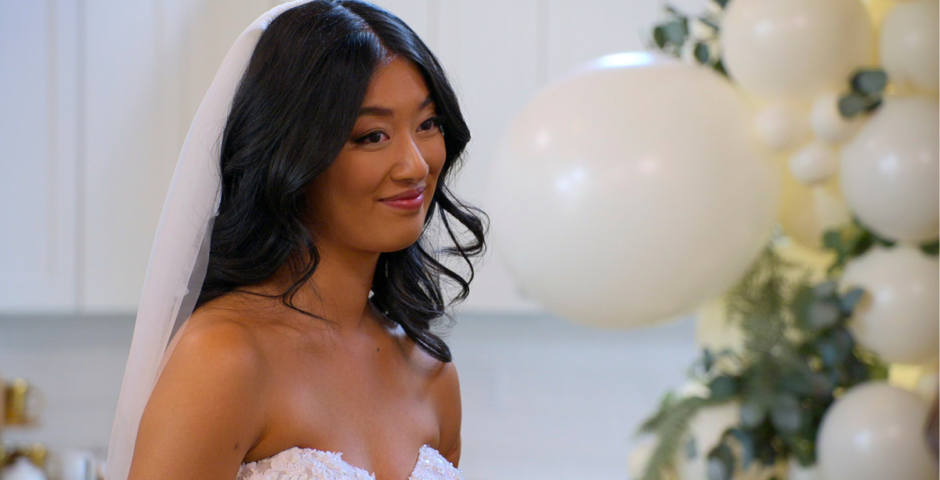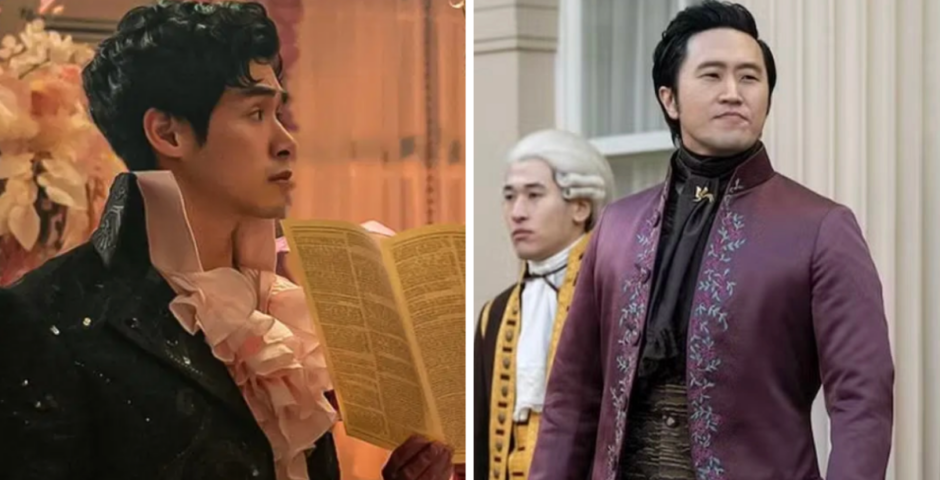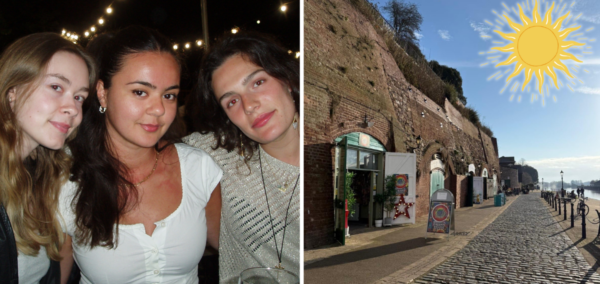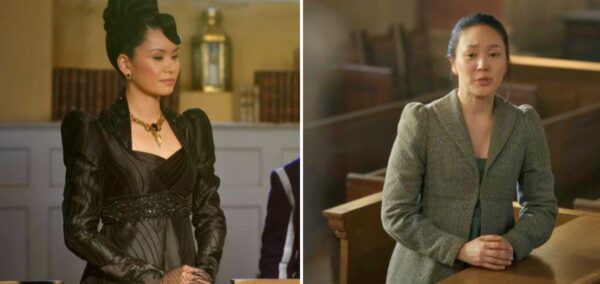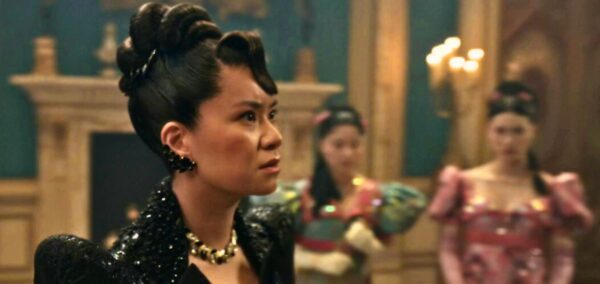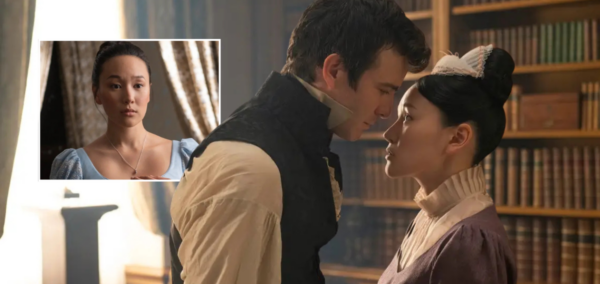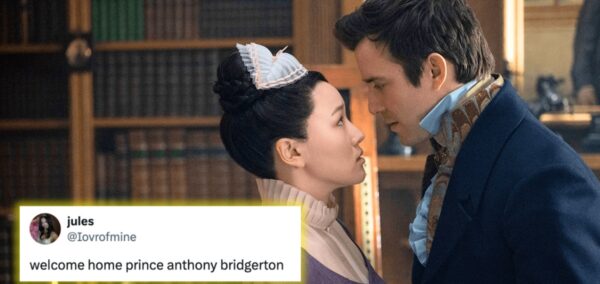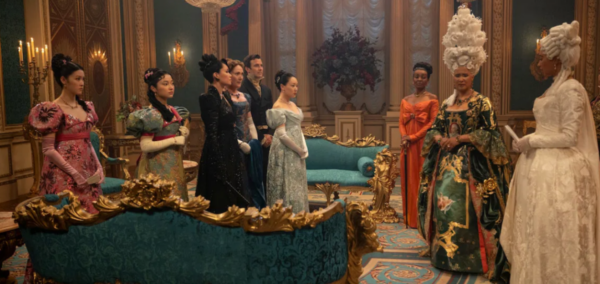
Review: Fairview
A play where knowing less when you enter results in feeling more when you exit
A remarkable publicity campaign led by Isabel Beresford-Cole meant that anyone with even a tangential interest in Cambridge theatre was well aware of Fairview by the time opening night came around. Originally premiering in 2018, this Jackie Sibblies-Drury play centres around a middle class African-American family preparing for their Grandma’s birthday dinner. You’d expect me to give away more, but I won’t, and when you watch it for yourself you’ll understand exactly why.
For a spot of context, from a Black-British perspective, media of our own didn’t pop off properly until the 2010s, so growing up the majority of us saw ourselves in the Black-American studio sitcoms of the 90s and 2000s – think The Fresh Prince of Bel-Air, or My Wife and Kids. These types of comedies date from the 70s, and typically centred around upper-middle class families, and were a crucial resource for many White-Americans to understand that Black people could be well-educated and affluent too, a far cry from the dominant negative portrayal in the news and popular media. This type of set design, led by a team of Tungsten Tang, Theo Chen and Qawiiah Bisiriyu (the latter two also being co-directors) is what immediately jumped out at me, and my suspicions were only proven right.
This appeal to respectability is seen immediately with Beverly (Kayden Best), who is desperate to host the perfect dinner party. We’re drawn to Beverly, the archetype of the no-nonsense matriarch who is nonetheless the heart of the dynamic – think Aunt Viv (and think OG Aunt Viv). She is a picture in purple, with costume designer Esme Bishop and makeup designer Grace Leaman coordinating her headscarf, dress, apron and eyeshadow. Such attention to detail could also be seen with the oranges of Jasmine (Ayo Adesina-Davies) – surprisingly an ADC newcomer, for her physical comedy and timing was on par with the seasoned actresses we’d watch taking on recurring roles as the fun aunty – bickering with her brother in law, spoiling her nieces and nephews, yet being as dependable and hilarious as ever. Dayton (Eyoel Abebaw-Mesfin) bounced off these two characters incredibly, taking on the Michael Kyle-esque role of the cheeky, yet charming, husband, inciting many a laugh from the crowd with his facial expressions and impeccable timing. Keisha, Beverly and Dayton’s daughter, was played by Mei Alozie, who took on the Penny Proud archetype of the high achieving, headstrong, understanding daughter. One of the most moving moments of the production was later revealed to be to be ad-libbed by Alozie, something I truly believe had a bigger impact on the reception of the play than anyone could have predicted.

Image credit: Charlotte Conybeare
Later on in the play, we’re finally introduced to two dinner guests that have only been spoken about so far (Gaby Albertelli and Jacob Benhayoun) in ways that are extremely different, but equally as shocking; and arguably fabulous. Zinger carries a campy air of mystery which arguably unlocks the play, and Benhayoun’s outrageous delivery and physical comedy will shock laughs out of you that you’ll fear are inappropriate. Such talent also extends to Natalia-Paloma Zinger and Eoin McCaul, with the two executing gorgeous routines to an incredible audience reception, and remaining hysterical throughout.
I wish I could gush about the script and everything about this production, but part of the magic of the play is knowing as little as possible going into it. It’s so intelligently written, and could not have come to life in the way it has without the delicate direction of Bisiriyu and Chen, and the assistance and collaboration of Lia Joffe and Keziah Prescod respectively. Led by Rory Clarke, the lighting team were unreal when it came setting the tone between domestic, comedic, and more vulnerable scenes. Likewise, sound was on point, with Alex Wrathall, Lily Casey , Rohan Teelock-Gaya and Coby O’Brien getting all the ringtones, Luther Vandross, and Dreamgirls you can imagine perfectly right.
There’s a CamDram list as long as my arm for all those involved, but I’ll have to give a nod to the props team of Rosy Akalawu-Ellman, Isobel Dyson and Ciaran McDougall, for the play would not have been the same without the gags they helped create. The team of producer Kate Caspari, assisted by Dewei Kung, could not have gone more right.
Even before entering the auditorium, the ADC was buzzing, and far more diverse than I – or most people I’ve spoken to – have ever seen it. It was heartwarming to see, with many afterwards remarking how they’d never felt as comfortable there as they did that night, myself included. Not only was there diversity of people, but there was diversity of thought, with viewers sharing their takes in an intimate talk with Beresford-Cole and Chen in the theatre afterwards.

Image credit: Charlotte Conybeare
Moments I’d interpreted as obvious satire had made others uncomfortable. White ADC members were open about how they’d taken for granted how easily they felt accepted in the theatre scene. Some questioned if the play resonated with the right people, while I questioned why there was a need to appeal to those people at all. In the era of Kenya Barris and the ever growing -ish cinematic universe, it feels as though a lot of black writing feels overly concerned with explaining blackness for non-black people, with a hyperconsciousness of how we’re perceived by others. For me this felt like an inside joke I was in on, while still being objectively uproarious for those of all backgrounds.
This is likely the most frustrating review I’ll ever write, due to how vague I’m having to be. But you’ll thank me after you watch it yourself. It’s on until Saturday, and you’ll be kicking yourself if you don’t watch it. It’s courageous, outrageous, and unlike anything you’ll ever watch.
5/5
Salma Salifu
____________________________________________________
I go to the theatre fairly often, both here in Cambridge and outside of term-time when I’m back home. Often, I connect with plays on quite an academic level, I might find the themes interesting or perhaps the visuals are particularly stunning. I’m not usually somebody who forms strong connections or affinities with any of the characters. For me, going to the theatre is therefore quite a detached experience: there’s something going on onstage and I’m over here in front, watching. Without spoiling how this happens, the point of Fairview is that it breaks down this dichotomy between watching and acting, between the audience and the cast. It is anything but a detached experience and really helped me to see how the process of watching, which I considered so passive, was really something active and wound-up in my own biases and privileges.
There is, of course, plenty to say about the production from a detached perspective. I found the lighting (coordinated by Rory Clarke) in Act 2 particularly interesting in the way that it changed reflecting key moments based on what was being said by, or about, the characters on-stage. The acting was also impressive and seamless, especially due to the powerful nature of the play. A few well-delivered lines particularly stood out, particularly Jasmine (Ayo Adesina-Davies) wonderfully sassily telling her sister Beverley (Kayden Best) that ‘I brought a Rosé and it’s from France!’.
However, I think that it’s important to say that this is not just a well-produced, well-directed and well-acted play, but one that has emotional power and is incredibly current. The play is principally about race, but also about gender and perhaps class- Act 2 seemed to subtly criticise the way in which these are discussed as completely separate categories. Whilst these other forms of categorisation were discussed implicitly, the way race was handled in the play was quite eye-opening, especially as a person of white ethnicity.

Image Credit: Paul Ashley
The play particularly deconstructs the white gaze. The process of looking is a theme throughout, with the start of the first scene involving Dayton (brilliantly played by Eyoel Abebaw-Mesfin) entering the house and looking at his wife, Beverley, without her noticing. In fact the first words of the play; ‘What are you looking at?!’, said by Beverley; is an idea that resurfaces again and again by the end.
The audience is particularly interesting and vital throughout. As well as providing substantial emotive force, the play at times is also immensely funny. Directors Theo Chen and Qawiiah Bisiriyu, as well as the whole cast, strike a good line between the humour of the play and its more serious themes, with a good emotionally range throughout. It was particularly interesting at certain moments where the audience both cringed and laughed, and I found that by Act 2 I began to second-guess myself, whether I should be laughing or reeling in disgust at certain moments. The production benefits from a multicultural audience and this range of perspectives or ‘gazes’ is what gives the play life and its ability to be experienced differently by different people.
Overall, watching the play as a white person caused me to reassess what is usually a comfortable space. This was in terms of both my day-to-day life but also, as was highlighted in the post-show discussion, applies to the space of the theatre itself. From the audiences, to the cast and the production members, Cambridge theatre is a white-dominated space. Introducing more plays that confront our assumed idea of the theatre as a white space is the first step to, as one audience member put it after the show, start a revolution in the Cambridge theatre scene.
5/5
Evan Grandidge de Paz
Fairview is playing at the ADC Theatre until Saturday 17th February. You can buy tickets here.
Feature Image Credit: Paul Ashley & Patrick Wang


